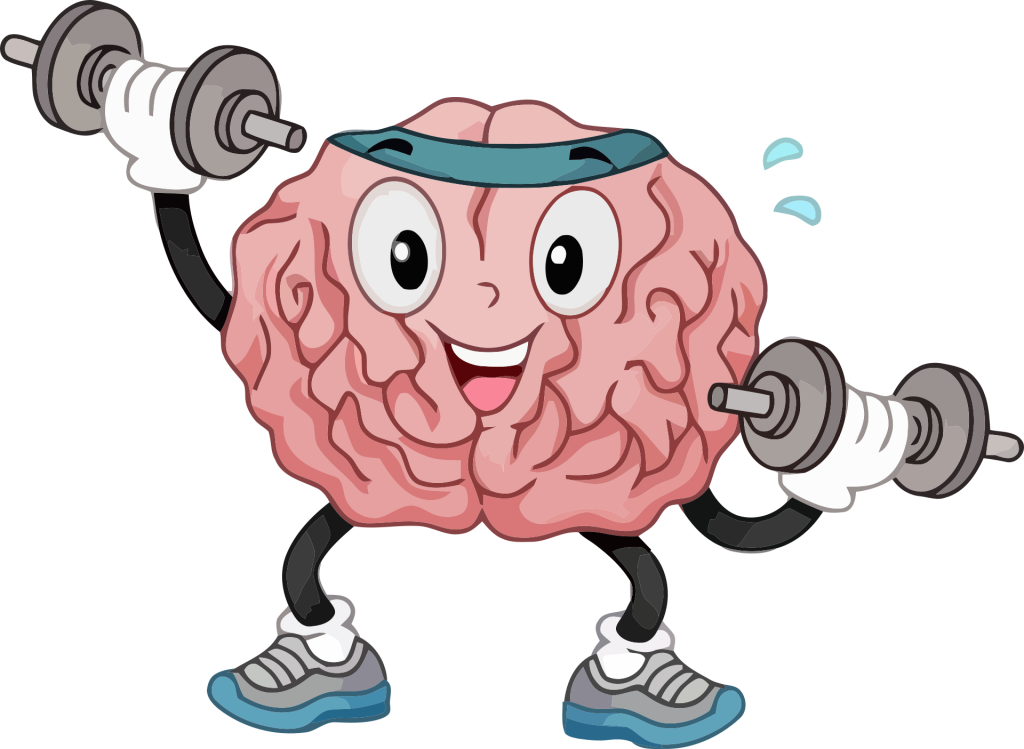Increasing Muscle Power: Energy, Motivation & Brain-Muscle Link
6 min read
Have you ever wondered why you feel exhausted after carrying heavy grocery bags or climbing a flight of stairs? While it might seem like your muscles are simply giving out, the reality is that your brain may be playing a crucial role in limiting your muscle strength and endurance. In this article, we will explore how the brain affects muscle performance in everyday life and what you can do to maximize your potential.
The Brain and Muscle Performance
As previously discussed, the brain and muscles work together to regulate muscle activation through the neuromuscular system. When you engage in physical activity, the brain sends signals to the muscles to contract, generating the force necessary to perform the task. Fatigue can reduce muscle activation by altering the signals sent by the brain, leading to decreased muscle strength and endurance.
The Importance of Training
Strength and endurance training can have a profound impact on muscle performance by making adaptations in the neuromuscular system. Regular exercise can lead to increases in muscle size, improved recruitment and synchronization of motor units, and enhanced neural control of muscle contraction. This, in turn, can result in improved muscle strength and endurance, allowing you to perform everyday tasks with greater ease and efficiency.
Broadening the Implications
The concept of the brain limiting muscle strength and endurance is not limited to exercise and physical activity. This phenomenon can have broader implications for overall muscle function and performance in everyday life. For example, manual labor tasks, such as carrying heavy bags or furniture, can be limited by muscle fatigue, which can be exacerbated by the brain’s decreased activation signals. Similarly, activities that require sustained strength and endurance, such as playing a musical instrument or typing on a computer, can be impacted by the brain’s limitations.
Maximizing Your Potential
By incorporating strength and endurance training into your routine, you can overcome the limitations imposed by the brain and unlock your inner strength. This can be achieved through a variety of exercises, such as resistance training, that target both peripheral and central adaptations in the neuromuscular system. Additionally, being mindful of the impact of fatigue on muscle activation and allowing for adequate rest and recovery can help prevent decreased muscle performance in everyday life.
Brain-Muscle Connection and Role of Energy and Motivation
The Energy Demands of Exercise:
Exercise requires a lot of energy, especially during high-intensity activities that demand a lot from the muscles. The energy needed to fuel these activities comes from the oxidation of carbohydrate, protein, and fat. The energy demands of exercise can lead to fatigue, which can then reduce muscle activation and performance.
The Connection between Energy and the Brain-Muscle Connection:
The connection between energy and the brain-muscle connection is not direct, but it is still important to consider. Energy is needed for both the brain and muscles to function, and fatigue in one can affect the other. For example, during exercise, the muscles require a lot of energy, which can lead to fatigue and reduce muscle activation. At the same time, fatigue in the brain can also reduce muscle activation, leading to a decrease in performance.
The Role of Motivation:
In addition to energy, motivation also plays an important role in the brain-muscle connection. Motivation can drive muscle activation and performance, and a lack of motivation can reduce activation and performance. This highlights the importance of finding ways to maintain motivation, especially during challenging physical activities.
Importance of Maintaining Adequate Energy Levels and Motivation:
In order to support both brain and muscle function and to prevent fatigue, it is important to maintain adequate energy levels and to eat a balanced diet. Additionally, finding ways to maintain motivation can help to improve overall performance, both in exercise and in everyday activities.
Conclusion:
The relationship between the brain and muscle strength is complex and multifaceted, but the potential to unlock your inner strength and improve muscle performance in everyday life is within reach. Through strength and endurance training, you can overcome the limitations imposed by the brain and maximize your muscle potential. So, embrace the challenge and start training today!
The brain-muscle connection and energy and motivation are interconnected, with each affecting the other. Maintaining adequate energy levels and a balanced diet, as well as finding ways to maintain motivation, are important for supporting both brain and muscle function and improving performance in both exercise and everyday activities. Understanding the connection between energy, motivation, and the brain-muscle connection is important for optimizing muscle performance and function.
Key Takeaways:
- The brain plays a crucial role in regulating muscle activation through the neuromuscular system.
- Fatigue can reduce muscle activation by altering signals sent by the brain, leading to decreased muscle strength and endurance.
- Strength and endurance training can have a profound impact on muscle performance by making adaptations in the neuromuscular system.
- The concept of the brain limiting muscle strength and endurance can have broader implications for overall muscle function and performance in everyday life.
- Exercise requires a lot of energy, which can lead to fatigue and reduce muscle activation.
- Energy and motivation are both important for the brain-muscle connection, and fatigue in one can affect the other.
- Maintaining adequate energy levels, a balanced diet, and motivation are important for supporting both brain and muscle function.
- The connection between energy, motivation, and the brain-muscle connection is important for optimizing muscle performance and function.
Action Points:
- Incorporate strength and endurance training into your routine to overcome the limitations imposed by the brain and unlock your inner strength.
- Be mindful of the impact of fatigue on muscle activation and allow for adequate rest and recovery.
- Experiment with different types of exercise, such as resistance training, to target both peripheral and central adaptations in the neuromuscular system.
- Embrace the challenge and start training today to maximize your muscle potential.
- Focus on eating a balanced diet to support both brain and muscle function.
- Pay attention to energy levels and make sure to get enough fuel before engaging in physical activity.
- Consider ways to maintain motivation, especially during challenging physical activities.
- Take steps to reduce brain fatigue when possible to support muscle activation and performance.





